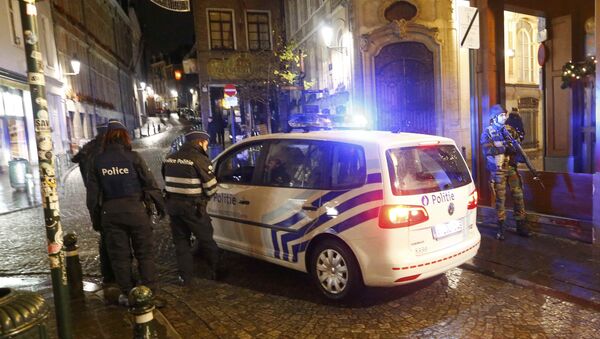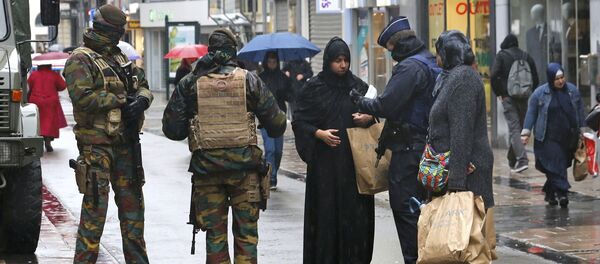"On Sunday 22 November the Belgian authorities announced that the decision taken the previous day to increase the security threat level for the Brussels region from 3 to 4 will remain in effect. As a consequence, the General Secretariat of the Council (GSC) has decided to raise its alert state to ORANGE (from yellow). This is a precautionary measure, consistent with the increased Belgian threat level," the statement read.
The heightened threat level means that several security measures will be put in place, according to the statement.
"As a result of the increase in alert state, the Presidency of the Council, in consultation with the GSC, has decided to cancel the majority of non-essential meetings scheduled to take place tomorrow in the Council building," the statement added.
Threat level remains at 4 for BXL region. No specific threat to EU institutions but security measures are reenforced. @EU_Commission 1/3
— Kristalina Georgieva (@KGeorgievaEU) November 22, 2015
Meetings taking place on @EU_Commission premises can go ahead but please check and expect heightened security checks. Stay safe. 2/3
— Kristalina Georgieva (@KGeorgievaEU) November 22, 2015
Safety and wellbeing of our staff remains priority so flexible working arrangements/telework encouraged wherever possible. 3/3
— Kristalina Georgieva (@KGeorgievaEU) November 22, 2015
On Saturday, the authorities raised the terror alert level in Brussels to level 4, the highest possible, in the wake of attacks in Paris earlier this month.
The Brussels underground was shut down on Saturday and Sunday, and will remain closed on Monday. The schools in the Belgian capital of Brussels will be shut down Monday over the highest level of terror threat
Following the attacks, the Belgian police carried out a series of anti-terrorist operations detaining a number of people in Brussels, after it was revealed one of the attackers had lived there. At least 16 suspects have been arrested, according to media reports.




